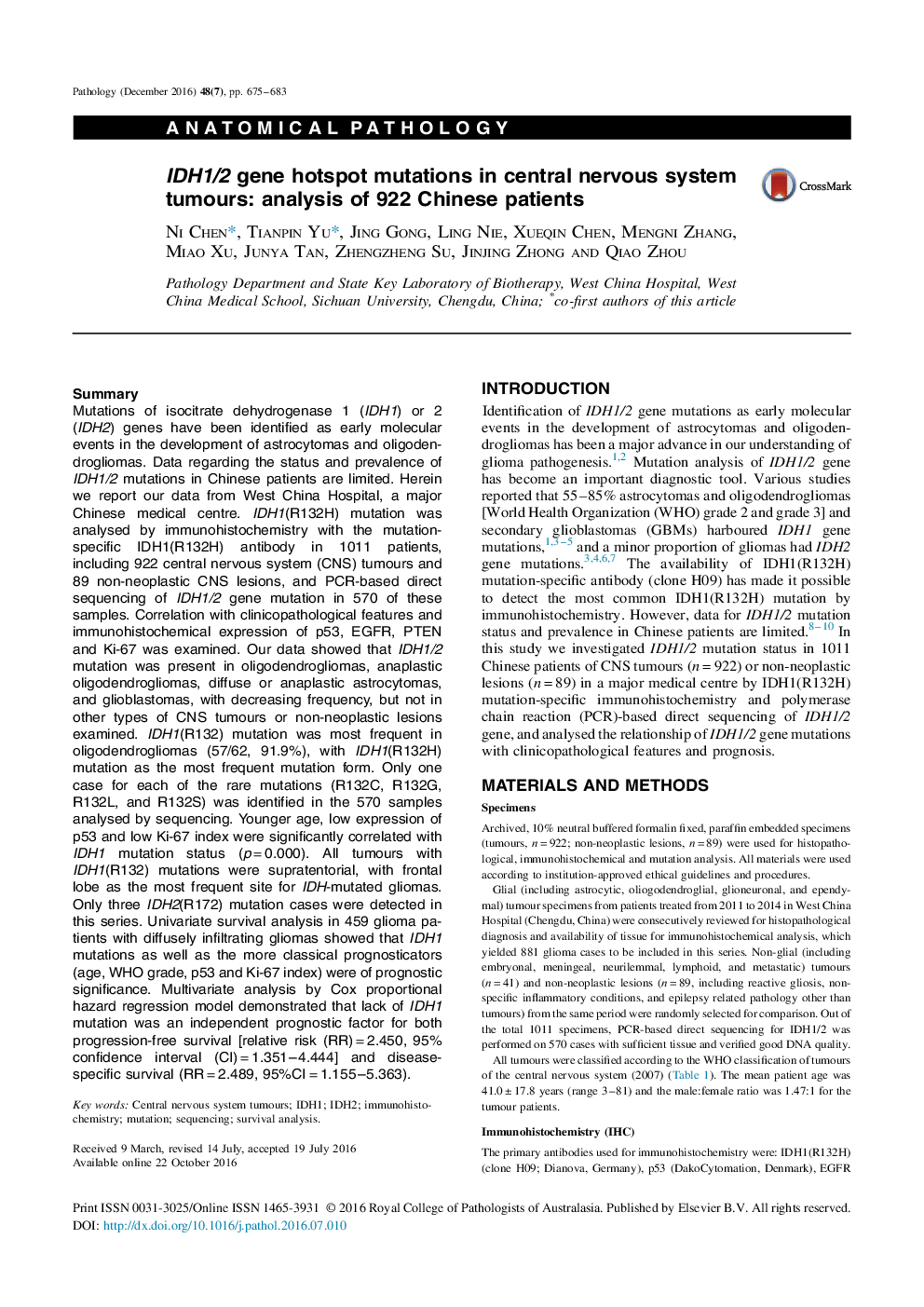| کد مقاله | کد نشریه | سال انتشار | مقاله انگلیسی | نسخه تمام متن |
|---|---|---|---|---|
| 6463256 | 161472 | 2016 | 9 صفحه PDF | دانلود رایگان |

SummaryMutations of isocitrate dehydrogenase 1 (IDH1) or 2 (IDH2) genes have been identified as early molecular events in the development of astrocytomas and oligodendrogliomas. Data regarding the status and prevalence of IDH1/2 mutations in Chinese patients are limited. Herein we report our data from West China Hospital, a major Chinese medical centre. IDH1(R132H) mutation was analysed by immunohistochemistry with the mutation-specific IDH1(R132H) antibody in 1011 patients, including 922 central nervous system (CNS) tumours and 89 non-neoplastic CNS lesions, and PCR-based direct sequencing of IDH1/2 gene mutation in 570 of these samples. Correlation with clinicopathological features and immunohistochemical expression of p53, EGFR, PTEN and Ki-67 was examined. Our data showed that IDH1/2 mutation was present in oligodendrogliomas, anaplastic oligodendrogliomas, diffuse or anaplastic astrocytomas, and glioblastomas, with decreasing frequency, but not in other types of CNS tumours or non-neoplastic lesions examined. IDH1(R132) mutation was most frequent in oligodendrogliomas (57/62, 91.9%), with IDH1(R132H) mutation as the most frequent mutation form. Only one case for each of the rare mutations (R132C, R132G, R132L, and R132S) was identified in the 570 samples analysed by sequencing. Younger age, low expression of p53 and low Ki-67 index were significantly correlated with IDH1 mutation status (p = 0.000). All tumours with IDH1(R132) mutations were supratentorial, with frontal lobe as the most frequent site for IDH-mutated gliomas. Only three IDH2(R172) mutation cases were detected in this series. Univariate survival analysis in 459 glioma patients with diffusely infiltrating gliomas showed that IDH1 mutations as well as the more classical prognosticators (age, WHO grade, p53 and Ki-67 index) were of prognostic significance. Multivariate analysis by Cox proportional hazard regression model demonstrated that lack of IDH1 mutation was an independent prognostic factor for both progression-free survival [relative risk (RR) = 2.450, 95% confidence interval (CI) = 1.351-4.444] and disease-specific survival (RR = 2.489, 95%CI = 1.155-5.363).
Journal: Pathology - Volume 48, Issue 7, December 2016, Pages 675-683